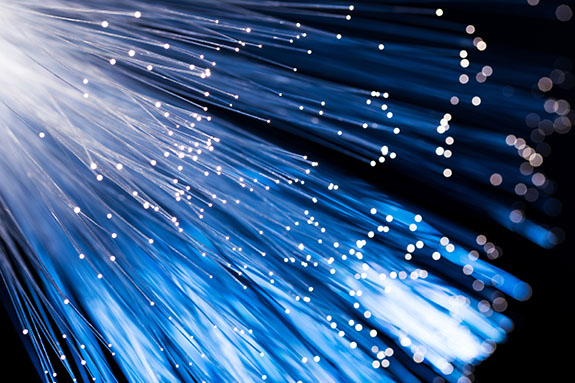 Are you a service technician looking to expand your knowledge and broaden your professional options? Are you technologically minded and eager to learn about the future of data transmission? If so, adding fiber optics technician skills to your resume could be the best career move you’ve ever made. Not familiar with fiber optics or not sure if it’s something you’d like to pursue? Well, we’ve compiled all the basic information you need to help you decide if fiber optics is the best career path for you.
Are you a service technician looking to expand your knowledge and broaden your professional options? Are you technologically minded and eager to learn about the future of data transmission? If so, adding fiber optics technician skills to your resume could be the best career move you’ve ever made. Not familiar with fiber optics or not sure if it’s something you’d like to pursue? Well, we’ve compiled all the basic information you need to help you decide if fiber optics is the best career path for you.
What is Fiber Optics?
Fiber optics is a technology that uses glass threads, or fibers, to transmit data. Fiber optic cables are made up of a bundle of glass threads, which transmits data that’s been modulated onto light waves. Because of the sturdiness, thinness, and greater digital and bandwidth capabilities of fiber optics, they’re quickly becoming the next evolution of telecommunication technology.
What does a Fiber Optics Technician Do?
Like any other phone, internet, or cable technician, fiber optic techs install, test, tune, and troubleshoot telecommunications cables for both residential and business customers. The differentiating factor is that fiber optic technicians also have additional training in how fiber optic cables function, and how they’re installed and managed.
Occupational Outlook
The job outlook for fiber optics technicians is experiencing steady growth, with approximately 250,000 jobs added in the field in 2013, making your longevity in the field promising. Receiving your Certified Fiber Optic Training will also increase your salary rate to an average of $28 per hour or just under $60,000 a year.
Training and Continuing Education Options
Becoming a Certified Fiber Optic Technician (CFOT) requires certification for general fiber optics applications. CFOT training courses are only open to those who already have service technician experience. These courses build on that pre-existing knowledge to include FOT skills such as design, installation, and operation. Most CFOT courses take about two years to complete and require you to pass a certification exam.
Four Common Types of Fiber Optics Equipment
In addition to standard service technician equipment such as bucket trucks, trenchers, cable pullers, and plows, fiber optics technicians also use a variety of industry-specific tool packages.
The four most commonly used fiber optics equipment include:
- Test Equipment – Power meters, test source, connector adapters, connector inspection microscope, visual tracer, and continuity checker.
- Cable Handling Tools – Utility knife, cable cutter, tubing cutter, buffer tube cutter, cable slitter, and needle nose pliers.
- Termination and Splicing Tools – Cable jacket stripper, connector crimper, fiber scriber, polishing puck for connector, polishing plate, and polishing pad.
- Consumables – Connectors, epoxy, trash bins and bags, lint-free wipes, polishing films and isopropyl alcohol.
Get Your Fiber Optics Equipment Organized with Adrian Steel!
If you’re a fiber optics technician or thinking about becoming one, then you know that organization is key to successfully completing a job. That’s why Adrian Steel offers the best in cargo management solutions to keep all of your equipment safe, secure, and easily accessible. For more information about how Adrian Steel can help you get organized for the next level give us a call at (800) 677-2726 or find a distributor near you to get started today!
If you are interested in learning more about becoming a Fiber Optics Technician, please visit The Fiber Optic Association for more information.
Connect with Adrian Steel on Social Media and stay tuned for our next installment of Next Level!

